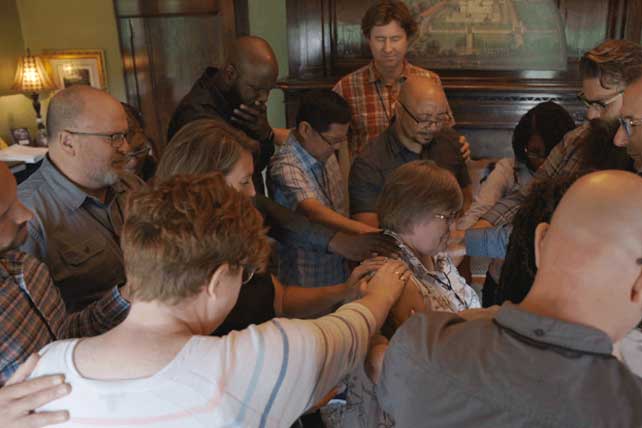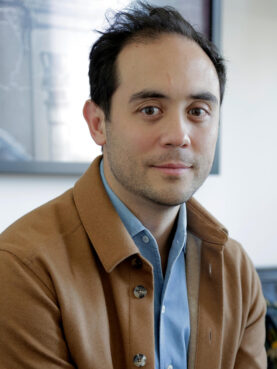In recent weeks, the filmmakers held screenings of the movie in Boston, St. Louis and Grand Rapids. They included performances by Yo-Yo Ma, who had been following the story of the filmmaking through conversations with his son.
“What is in common between music and religion is the idea of faith and trust, because faith is a form of trust,” the famed cellist said in an interview. “I know I can’t perform with somebody on stage without totally trusting them.”
That trust, like making friendships or building a community, is a leap of faith — and comes as people decide to be vulnerable with one another.
“When trust is there, it’s because we allow ourselves to be vulnerable, and that becomes a strength because then you can build bridges,” said Yo-Yo Ma. “Otherwise, it’s like you’re two independent actors and you’re making transactions, whereas if you’re really trusting, then it’s a process of uniting and making one out of many.”
Gulker said the pastors in the group were ready for something better than the current political and social climate, where distrust and anger are commonplace. That allowed them to take a leap of faith.
“They were ready for friendship, especially after the grueling time of the pandemic and all political polarization,” he said. Gulker said he hopes the folks who see the film will follow in the pastors’ footsteps.
The Rev. Kelly Fassett, executive director of UniteBoston, which seeks to foster relationships between churches, saw a screening of the film in Boston last week. She said the film has given her a lot to think about as she tries to create spaces of “reconciliation, kinship and belonging for all of God’s children.”
“Truly, the theological positions we hold must also result in a deeper love of God and deeper love of neighbor — an important message for our world today, especially in this election year,” she said.
Nicholas Ma. (Photo © Picturehouse 2024)
Steve Watson, pastor of Reservoir Church, a post-evangelical church in Cambridge, Massachusetts, said the film left him wondering what kinds of friendships he might be able to make with his neighbors. He had hoped more might happen in the film, that perhaps friendship might lead folks to change their minds on issues, but that did not happen.
“On the other hand, a different kind of small miracle occurs. They do genuinely manage to become friends,” he said. “The subtext feels like if we’re expecting that love of neighbor will persuade our political or theological opponents to believe or vote like us, that likely isn’t going to happen, or at least not usually and not quickly.”
This article originally appeared here.


